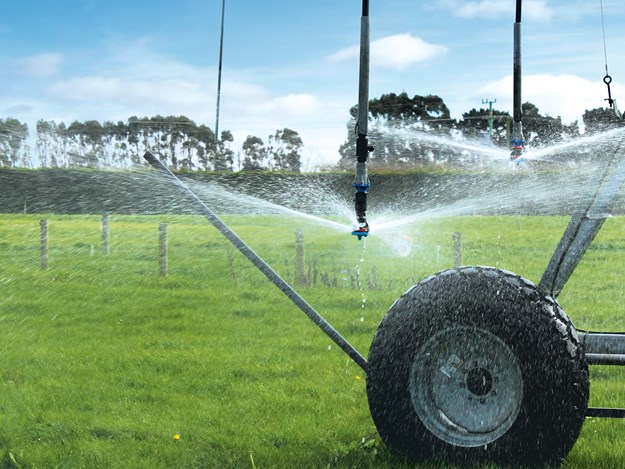Farm advice: Standards and training in irrigation industry
IrrigationNZ's Stephen McNally on why we need standards and training in the irrigation industry
.jpg)
There’s no denying that water is fundamental to just about every aspect of the process of growing food and fibre for both New Zealand and international consumers. We either have too much where and when we don’t want it, or we face long dry summers where the security of access to water for irrigation is critical.
In my role with IrrigationNZ, I deal with many aspects of freshwater policy, regulations, and technology innovations, all intertwined with the role of water in the primary industries.
The evidence of continued climate change and extreme events placing demands on soil moisture management is confronting us all. Regardless of the strength or practicalities of regulations, we must, as an industry, keep our eye on water resource use efficiency and how that helps us meet farm business, environmental, and community expectations.
The New Zealand Certificate in Irrigation System Design and the NZ Certificate of Irrigation Performance assessment are based on industry best practice standards. These courses are aimed at those working within the irrigation industry who want to learn more about the details of good irrigation system design and performance management. Each time I prepare for my role in delivering these courses, I’m reminded of the breadth of information that’s covered and the level of competence expected of irrigation companies, system owners and regulators alike.

These courses both kick off with a review of freshwater legislation and the implications of the rules that we need to consider. This includes an understanding of how the new NPS for Freshwater is driving the Freshwater Farm Plan and the inclusion of both freshwater and effluent irrigation practices. The standards are getting tighter and, as a result, knowledge expectations around irrigation best practices are lifting across the country.
Your aim as an irrigator is to use just enough water applied through your equipment to keep your soils at their best moisture content down through the depth of the root zone.
The linkage between what water you have access to use and the water needed in the soil root zone, is your irrigation equipment, the pumps, filters, pipes, and emitters, whether those are pivot irrigators or under tree sprinklers.
Key modules of the irrigation system design and performance assessment courses cover the skills necessary to undertake testing and commissioning of an irrigation system. A commissioning process will demonstrate the completed system has been built as proposed and that it will perform to the planned Key Performance Indicators. The designer is expected to complete the necessary documentation of critical operation and maintenance features, which are used to train the operator and set the basis of ongoing performance measurement. The commissioning report is, therefore, a vital piece of farm system management information.
Each component of the irrigation system, from source to the soil, presents opportunities for precision and efficiency, or the opposite if things are not working according to the way it was commissioned.
If your system is not designed, installed, and commissioned by suitably qualified and accredited practitioners to the best available practice standards, you risk not gaining the most from the water, energy labour, and money committed to your irrigation development.
Having intimate knowledge of the way your system operates gives you the confidence to make good decisions on water use, minimising volumes extracted and improving plant growth.
There’s a lot of clever technology appearing in the market that can measure and monitor many parts of the irrigation processes, including water take volumes, power consumption, soil moisture levels, and services that look at weather patterns in your district. Of all the aspects that can affect system precision, uniformity of application is one of the most significant, and it’s relatively easy to have tested.
What you may have been confident of through intuition may not be quite as you thought, especially as you gain an understanding of the data and analysis relating to soil moisture through the root profile.
Train yourself and your staff, attend courses, get some qualifications under your belt, and look to gather knowledge from the experts available to you. Then share your experiences so others can see the benefit of a good system commissioning process in their own situation.
Find new and used farm machinery for sale in NZ
Keep up to date in the industry by signing up to Farm Trader's free newsletter or liking us on Facebook





.jpeg)
.jpg)
.jpg)
.jpeg)

.jpg)


.jpg)



